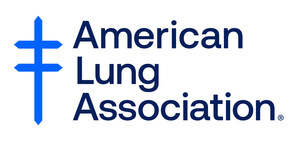Tobacco Industry Continues to Spend Billions While Public Health Shortchanged
American Lung Association Annual "State of Tobacco Control Report" reveals tragic money trail leading to tobacco-caused death and disease; federal government largely failing to combat industry tactics
WASHINGTON, Jan. 16, 2013 /PRNewswire-USNewswire/ -- Follow the trail of money misused by policymakers and strategically invested by Big Tobacco in the American Lung Association's "State of Tobacco Control 2013" report released today to discover how the leading cause of preventable death is often entangled in a financial web of neglect and deceit.
(Photo: http://photos.prnewswire.com/prnh/20130116/DC42085-INFO)
The Lung Association's "State of Tobacco Control" report tracks annual progress on key tobacco control policies at the federal and state level, assigning grades based on whether laws are adequately protecting citizens from the enormous toll tobacco use takes on lives and the economy.
"We are faced with a deep-pocketed, ever-evolving tobacco industry that's determined to maintain its market share at the expense of our kids and current smokers," said Paul G. Billings, American Lung Association Senior Vice President for Advocacy and Education. "State and federal policymakers must battle a changing Big Tobacco and step up to fund programs and enact policies proven to reduce tobacco use."
The federal government's progress on tobacco control over the past several years nearly ground to a halt in 2012. Most notably, the Food and Drug Administration (FDA) failed to exercise its oversight authority allowing for the proliferation of a new generation of tobacco products aimed at hooking youth smokers.
State governments continued their years of inaction by again failing to invest income from tobacco taxes and tobacco settlement payments into programs proven to keep youth off tobacco and help current smokers quit. According to the U.S. Surgeon General's report, if states begin to invest in tobacco prevention programs, youth tobacco use could be cut in half in just six years.
Smoking costs the American public almost $200 billion every year in healthcare costs and lost productivity and wages – a staggering bill that the country can ill afford.
States Fail to Invest Tobacco Money to Fight Tobacco Use
Despite receiving $25.7 billion in tobacco settlement payments and tobacco taxes this year, more than 40 states received an F for not investing even half of what is recommended by the U.S. Centers for Disease Control and Prevention in proven tobacco prevention programs.
States and the federal government have also failed to raise taxes on tobacco products other than cigarettes. This led to a surge in the consumption of certain cheaper tobacco products, including flavored cigars that are popular among already vulnerable populations—youth, low income communities, Hispanics and LGBT.
"By not having a level playing field with tobacco taxes, we're seeing market shifts from cigarettes to lesser taxed and subsequently more affordable tobacco products. This means candy flavored cigars and a new wave of smokeless products are enticing new, young customers to become addicted to nicotine," continued Billings.
According to preliminary data from a report by the National Institute on Money in State Politics, called "Big Tobacco Wins Tax Battles," the tobacco industry was also hard at work making campaign contributions to candidates for political office and bankrolling efforts aimed at defeating ballot initiatives. Candidates for state office during the 2011-2012 election cycle accepted $53.4 million and the industry spent a whopping $46 million to defeat Proposition 29, which would have increased California's cigarette tax by $1.00 per pack. In addition, according to the Center for Responsive Politics, the tobacco industry contributed over $3.7 million to candidates for federal office.
"It's no wonder we're losing ground in the fight to end tobacco-caused death and disease," stated Billings. "Elected officials are getting cozy with Big Tobacco."
States are exacerbating the destructive power of tobacco use by not passing comprehensive smokefree laws or providing comprehensive support so tobacco users can end their addiction for good.
The state section of the report card was for the third consecutive year awash with Ds and Fs.
Federal Government Takes Step Back in 2012
Sadly, the federal government received its worst report card in years, earning three Ds and an F.
The American Lung Association was particularly concerned by the F grade for the FDA's lack of regulation of tobacco products. FDA did very little meaningful implementation of the Tobacco Control Act in 2012, including failing to assert authority over other tobacco products besides cigarettes and smokeless tobacco.
"The FDA is failing to keep pace with the tobacco industry, which has spent the past year evading oversight from the agency," warned Billings. "While this public health watchdog has been looking the other way, Big Tobacco has been pursuing new users with ruthless zeal and a host of new products. We're also seeing the cigar industry hard at work trying to pass federal legislation that would revoke FDA authority over its deadly products."
While the Obama Administration has historically been aggressive in its efforts to help tobacco users quit, in 2012 it stumbled off course:
- The Department of Defense (DOD) has yet to finalize a rule that would provide service members and their families with vital access to comprehensive services and medications to quit tobacco use.
- The Department of Health and Human Services (HHS) has missed an opportunity to ensure smokers enrolling in new state health insurance exchanges have access to a comprehensive cessation benefit, by not adequately defining this benefit. This will lead to inconsistent coverage at the state level.
The one major success for the federal government in 2012 was the CDC's wildly successful Tips From Former Smokers advertising campaign, which spurred a dramatic rise in smokers seeking help to quit.
"The success of the Tips campaign was achieved through a modest investment of $54 million, equivalent to what the tobacco industry spends in three days peddling its deadly products. This campaign reinforces that many smokers want to quit and they need support and guidance to do so. We need more campaigns like this from the federal government," said Billings.
About the American Lung Association
Now in its second century, the American Lung Association is the leading organization working to save lives by improving lung health and preventing lung disease. With your generous support, the American Lung Association is "Fighting for Air" through research, education and advocacy. For more information about the American Lung Association, a holder of the Better Business Bureau Wise Giving Guide Seal, or to support the work it does, call 1-800-LUNGUSA (1-800-586-4872) or visit www.Lung.org.
SOURCE American Lung Association
WANT YOUR COMPANY'S NEWS FEATURED ON PRNEWSWIRE.COM?
Newsrooms &
Influencers
Digital Media
Outlets
Journalists
Opted In





Share this article